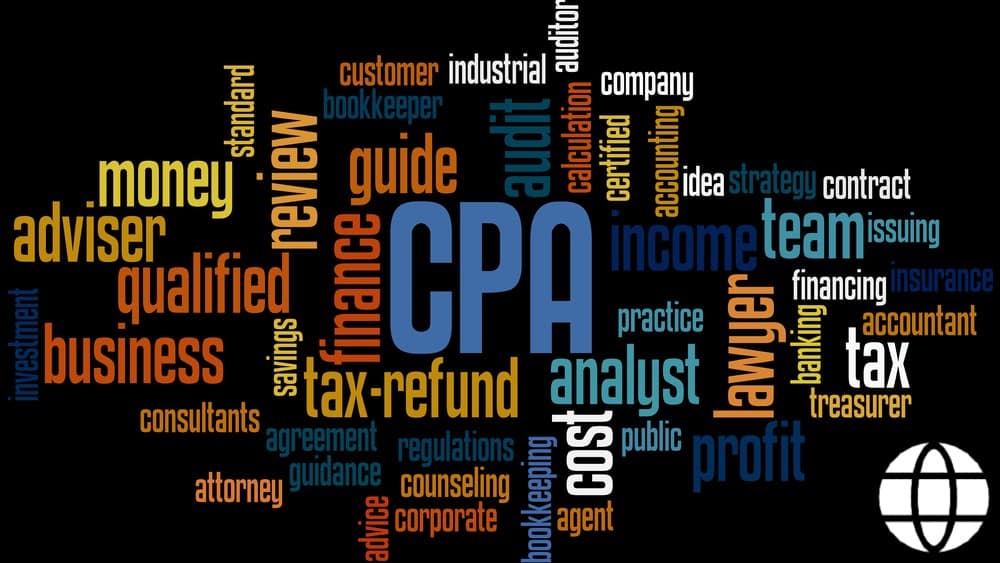Hey guys, welcome to a fun read on becoming a CPA!
In this piece, you’ll understand what it takes to become a certified public accountant.
Here are the significant takeaways from this article:
Let’s discuss how to get your CPA license in simple terms!
Steps to Becoming a CPA
If you’ve always dreamed of how to become a CPA, below are the procedures to follow:
Step 1: Meet the Education Requirements
Every state has its requirements on how to get CPA certified.
Many states require CPA hopefuls to have a bachelor’s degree before taking the certification exam.
Still, few states allow aspirants to take some test sections during their undergraduate degree program.
Find out the specific education requirements of your intended state of practice immediately after your high school education to be an early starter.
While schooling for CPA, ensure you major in business or accounting, with relevant coursework.
A CPA hopeful should have a minimum of 24 credit hours in taxation, accounting education, and auditing.
They must also have evidence of 30 college credit hours in a business-related subject like business law, management accounting, and financial planning.
Again, these CPA requirements vary by state; hence, endeavor to confirm the exact eligibility requirements from the state board of accountancy.
For instance, some states exceed the conventional 120 credit hours of an accounting degree requirement and expect 150 semester hours from aspirants to sit the exam.
While many states will allow you to take the exam with a bachelor’s degree, almost all of them require 150 semester hours from aspirants before being licensed.
Step 2: Purchase a Course Review and Study It
After fulfilling the educational requirements, the next step is to get a course review and study.
You must pass four exam sections before getting a CPA license.
Many CPA candidates put the cart before the horse by registering for the exam before getting study materials.
Get the CPA review course, set a deadline for yourself, and ensure you pursue the accounting program with all diligence.
If you aren’t disciplined, don’t bother to learn how to get a CPA license because you can’t pull through.
Conduct extensive background checks on a prep course before getting it because a lousy exam prep course could earn you a re-sit in all four sections of the exam.
Choosing the right course will ease your preparations and help you pass the exams at once.
The ideal CPA review course should match your study schedule, budget, and study style.
If you want to embark on a self-study, check for the course that will support your choice.
The fact that a course is popular doesn’t make it the best; don’t allow what the crowd is saying to mislead you.
Step 3: Apply to Sit for the CPA Exam
After several weeks or months of studying the course review, you should apply to take the CPA exam.
While this step sounds simple, applying to the exam is complicated.
Your state board of accountancy must verify your educational requirements to become a CPA.
You can formally apply for the exam after the board’s approval.
After accepting your application, the board issues a Notice To Schedule (NTS).
The NTS allows you to schedule and sit a section of the exam.
It means that you’ll receive four notices for the exam.
Our explanation of the application process is straightforward, but you must cross many hurdles during the application.
That is why you must ensure you meet the eligibility criteria before applying to sit the examination.
Step 4: Pass the CPA Examination
The four sections of the exam are:
· Auditing & Attestation (AUD)
· Regulation (REG)
· Financial accounting & reporting (FAR)
· Business environment & concepts (BEC)
A CPA hopeful must score a minimum of 75 out of a scale of 99 in each section to pass the CPA exam.
The American Institute of Certified Public Accountants (AICPA) conducts the certification exam four times annually.
The AICPA conducts the exams at Prometric centers in conjunction with the National Association of State Boards of Accountancy (NASBA).
You can take all four sections once in each testing window.
However, it’s unwise to schedule all the sections in a testing window; you’re unlikely to pass them all.
Many experts advise that CPA candidates study the course materials for more than one month before taking each segment.
Thus, you should take at most two sections in a testing window.
You have an 18-month window to pass the other three sections after passing the first exam.
If you don’t pass all the exams within one and a half years, you’ll have to start all over.
While it may sound scary, it occurs!
You can’t take a section more than once in a testing window.
If you fail a segment now, you’ll wait till the next edition before retaking it.
Thus, one of the significant steps to become an accountant is thorough preparation.
Step 5: Take the Ethics Exam
CPA candidates who have successfully passed all the sections of the certification exam will sit an ethics examination.
After signing up for the exam, you’ll receive a mail containing educational material on ethics from the American Institute.
The book explains the professional ethics every licensed CPA must abide by.
Study the document at your pace and take the ethics test online.
The exam is more of a take-home than a real one.
It is the professional education segment of the process.
Though the ethics exam isn’t compulsory or required in all states, it’s a common requirement.
You may contact your state board to know if you need this step to earn a CPA certificate.
You’ll most probably need it because most accounting firms don’t want to waste time teaching their recruits the do’s and don’ts of the industry.
They want a professional who can get things running on the first day!
Do whatever it takes to put yourself ahead of the competition.
Many public accountants now earn a master’s degree in accounting courses to give themselves an edge over their contemporaries.
Step 6: Meet the Work Experience Requirements
Besides fulfilling the CPA degree requirements, you must also showcase your accounting experience before earning the CPA certificate.
Focus on your work experience after passing all the necessary exams.
Again, you should find out your state’s specific CPA accountant requirements because every state has unique experience requirements.
For instance, while some states require 6 months of experience, others need 1-2 years.
You must be directly supervised by a CPA-certified professional while garnering the experience.
We may refer to the process as “CPA schooling”.
You will garner practical, real-world experience at this stage that will set you up for success in the industry.
Some states even highlight the roles you must perform while fulfilling the experience requirements.
For instance, some states require a CPA hopeful to have a minimum of a year of experience in auditing.
In contrast, others don’t make this mandatory once you have experience in other relevant areas.
Step 7: Pay Your Dues and Get Certified!
Upon completing your work experience, you may now proceed to pay your licensure fees and wait for the arrival of your certificate!
Step 8: Fulfill Continuing Education Requirements
The journey doesn’t end at being licensed; you must fulfill other requirements to keep your license active.
You should develop your skills and knowledge via continuing professional education (CPE) and tap into other development-driven opportunities.
You stay updated about the CPE requirements of your state to avoid confusion or penalties at the point of renewing your license.
For instance, in Maryland, you must earn at least 80 credit hours of CPE every license period to be eligible for certificate renewal.
The Department of Labor states that a CPA may complete the CPE in non-technical and technical subjects.
However, public accountants must complete 4 hours of continuing education in professional ethics every two years to keep their license active.
You should report earned CE on the information systems of the appropriate organization because they’ll vet your claims at the point of renewal.
Be ethical in all your ways; don’t be tempted to report an uncompleted CE because such unethical behavior can earn you severe penalties.
How to Become a CPA Online
The world is constantly evolving, and almost everything is becoming digital.
You’ll discover that most of the steps we discussed in this piece are online-based.
But if you’re still concerned about how to become a CPA online, the first step is to pursue an online accounting degree from an approved institution.
However, what is your state board saying on work experience and educational requirements?
Do they permit you to earn them online?
If yes, you’re free to become a CPA online.
Otherwise, you will do a few offline tasks to meet the requirements.
However, you shouldn’t seek to cut corners in your quest to become a CPA because the training, requirements, and experiences prepare you for a fulfilling career.
Conclusion
Those searching for “how to become a CPA without a degree” are in for a long thing because a university degree is an indispensable requirement for the CPA license.
While the degree might not necessarily be in accounting, it must be from an accredited institution.
You can see that it’s a challenging process to get your state license.
Some may even be forced to ask, “Why get CPA?”
Don’t be discouraged by the lengthy procedures because the journey is worth it.
The CPA appellation is one of the most remarkable and distinguished designations in the finance industry, and you must prove that you’re knowledgeable, disciplined, versatile, experienced, hardworking, and ethical before earning it.
You may consider the stages you must undergo as the vetting process to earn the certification and get the state license.
Again, it’s worth the stress and discipline.
After earning the designation, your status will change, and numerous unimaginable doors will begin to open to you.
You may even add glamor to the certification by pursuing a master’s degree in management & cost accounting.
With that, you’ve set yourself up for senior levels in accounting firms.
Of course, wearing a professional status will invariably lead to more earnings.
You won’t regret exploring this path!









